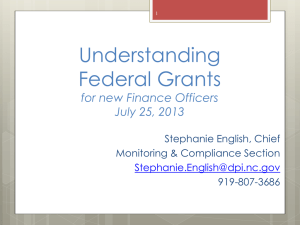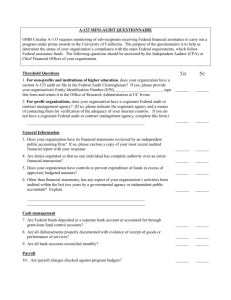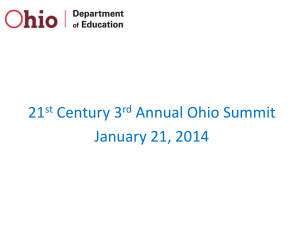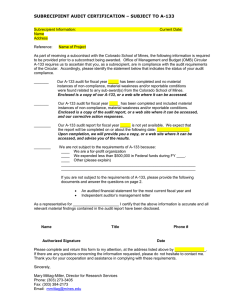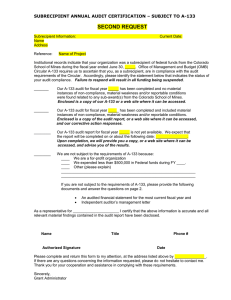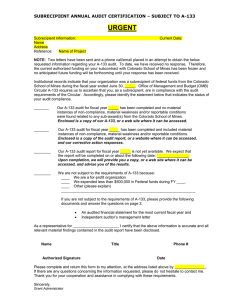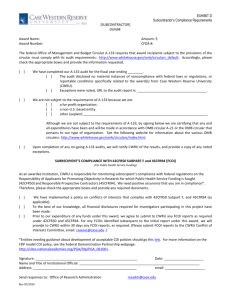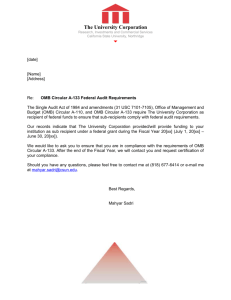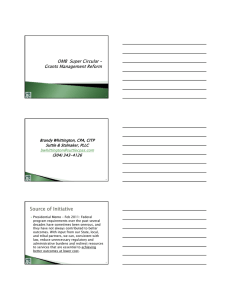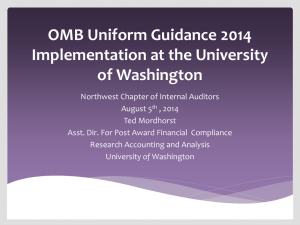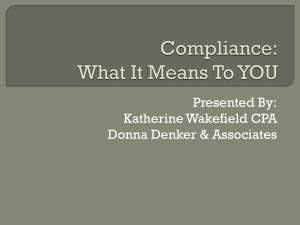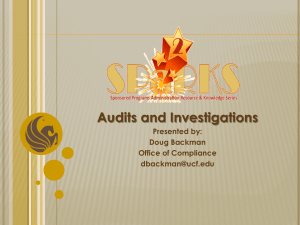Program and Fiscal Integrity for Part A
advertisement
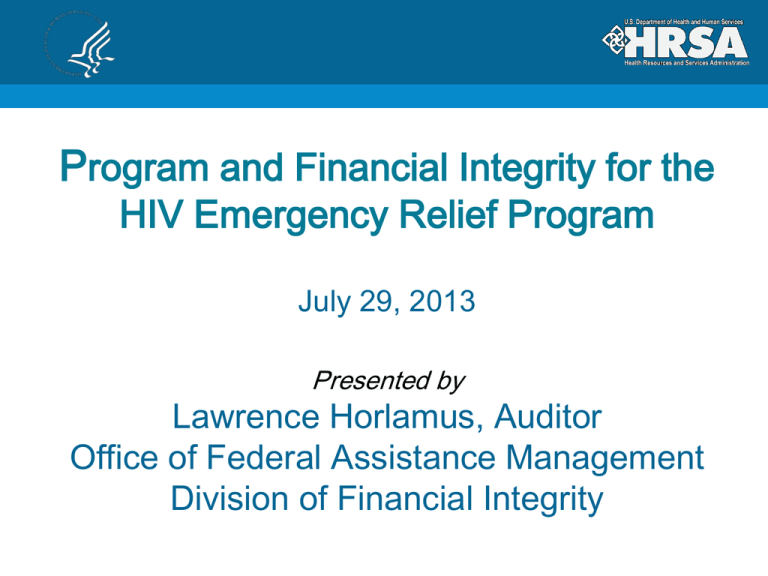
Program and Financial Integrity for the HIV Emergency Relief Program July 29, 2013 Presented by Lawrence Horlamus, Auditor Office of Federal Assistance Management Division of Financial Integrity Agenda Program Integrity Initiative at HRSA A-133 Audit Findings Allowable/Unallowable Costs Allocation and Segregation of Costs Grant Personnel Charges Financial Management – Good and Bad Practices Questions and Answers Program Integrity Initiative “The Program Integrity Initiative is designed to target the greatest risks of fraud, waste, and abuse and reduce those risks by enhancing existing program integrity operations, share new and best program integrity practices, and measure the results of our efforts.” Program Integrity at HRSA • Agency-wide Workgroup • Grantee Outreach: Technical Assistance, Webinars, Social Media • Increased Collaboration Amongst Bureaus, Divisions, and Grants Management Operations • Training 2010 A-133 Audit Findings Program Name HIV Emergency Relief Program Total # of Total # Audits CFDA of Audits with Findings 93.914 82 162 2011 A-133 Audit Findings Program Name CFDA HIV Emergency Relief Program 93.914 Total # of Total # Audits with of Audits Findings 103 154 2011 A-133 Audit Findings 2011 Compliance Requirement A B C D E F G H I J K L M N P Description Activities allowed or un-allowed Allowable costs/cost principles Cash management Davis-Bacon Act Eligibility Equipment and real property management Matching, level or effort, earmarking Period of availability of Federal funds Procurement and suspension and debarment Program income Real property acquisition and relocation assistance Reporting Sub-recipient monitoring Special tests and provisions Other TOTALS # of Findings 13 27 11 0 16 1 9 1 7 6 % of Total Findings 8% 18% 7% 0% 10% 1% 6% 1% 5% 4% 0 28 8 2 25 154 0% 18% 5% 1% 16% Compliance Requirements • Activities Allowed or Unallowed (A) • Eligibility (E) • Matching, Level of Effort, Earmarking (G) • Period of Availability of Federal Funds (H) • Program Income (J) • Reporting (L) Source: A-133 Compliance Supplement, June 2012 A-133 Audit Findings Summary: Grantees can do their part to strengthen Program Integrity by avoiding audit findings! Federal Cost Principles Federal Regulations Cost Principles Uniform Admin. Reqs. Entity Type OMB Circulars Education Institutions OMB A-21 2 CFR 220 45 CFR 74.27 State and Local Governments OMB A-87 2 CFR 225 45 CFR 92.22 Non-Profits OMB A-122 2 CFR 230 45 CFR 74.27 Allowable Costs Cost Allocation and Segregation Grantees should be sure to fairly and accurately allocate direct costs to their grant and non-grant activities. Grantees should be sure to segregate grant fund expenditures by grant to ensure accurate draws of Federal funds. Personnel/Labor Charges • Allowed to charge grants for actual labor not budgeted labor • Accurate labor charges help an organization create accurate budgets and applications • Accurate labor charges help an organization determine the true cost of a project or meeting grant objectives Personnel/Labor Charges Refer to the section entitled “Compensation for Personal Services” in 2 CFR Part 225 for more information. Financial Management – Good Practices • Having well documented Policies and Procedures • Periodically performing internal audits of grant performance and grant fund management • Providing plenty of training on managing grants and the OMB Circulars, including cost principles Financial Management – Bad Practices • Not adequately documenting grant costs – would be unallowable if audited/reviewed • Time sheets reflect budgeted hours instead of actual hours worked • Drawing down funds in excess of immediate needs • Not segregating grant expenditures from non-grant expenditures or other grant expenditures Questions ? Contact Information Health Resources and Services Administration U.S. Department of Health and Human Services
